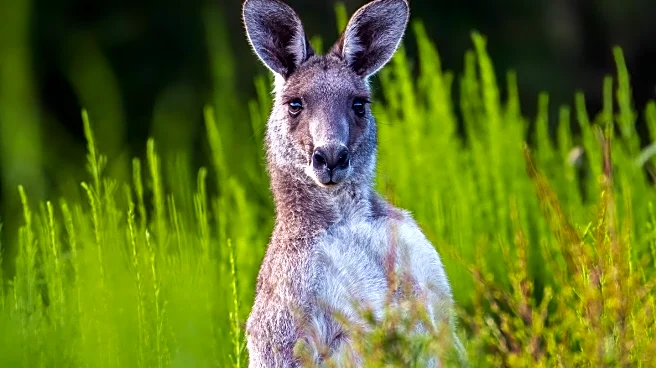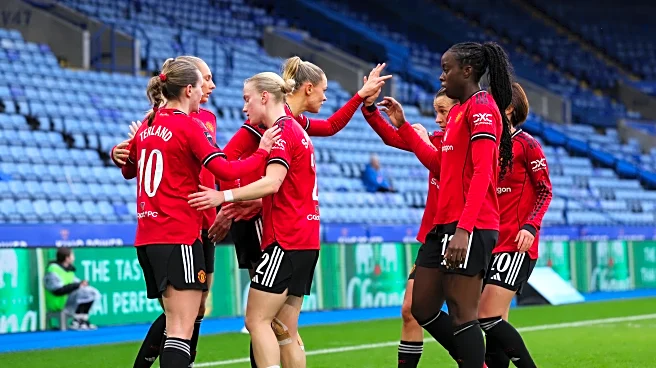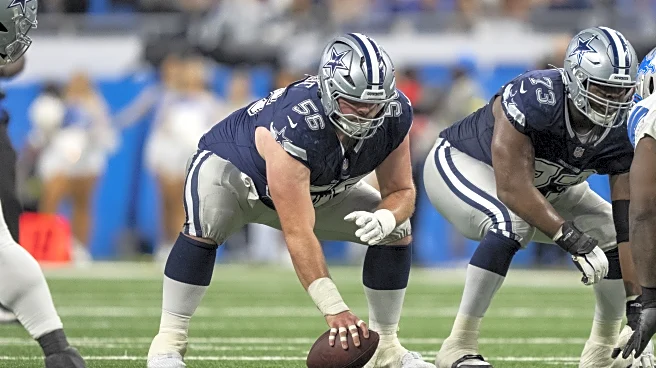What is the story about?
What's Happening?
In South Carolina, Dr. Christine Kopp, a chiropractor known for treating dogs and cats, recently expanded her practice to include a kangaroo. The kangaroo, named Roo, was brought in for a chiropractic adjustment, drawing attention due to its unusual presence in the waiting room. Dr. Kopp noted the challenges of working with a marsupial, particularly due to its unique anatomy and constant movement. Roo's owner, Laurie Dozier, explained that the kangaroo is still young but growing rapidly, with the potential to reach over six feet tall and weigh more than 200 pounds. Despite the kangaroo's wild instincts, Dr. Kopp successfully performed the adjustment, noting that Roo appeared to be hopping straighter afterward.
Why It's Important?
This event underscores the expanding scope of veterinary practices in the U.S., where chiropractors are increasingly treating a diverse range of animals beyond traditional pets. The inclusion of a kangaroo in chiropractic care highlights the adaptability and innovation within the field, potentially influencing other practitioners to explore treatments for exotic animals. This could lead to broader acceptance and integration of alternative veterinary practices, benefiting animal welfare and offering new business opportunities for veterinary professionals.
What's Next?
As veterinary practices continue to evolve, there may be increased demand for specialized training and equipment to accommodate exotic animals like kangaroos. This could prompt veterinary schools to expand their curricula and encourage practitioners to develop expertise in treating non-traditional pets. Additionally, public interest in such unique treatments may drive further media coverage and community engagement, potentially influencing local regulations and standards for animal care.
Beyond the Headlines
The ethical considerations of treating wild animals in a domestic setting are significant. While such practices can improve animal welfare, they also raise questions about the domestication of wild species and the responsibilities of owners. As more exotic animals receive treatments typically reserved for pets, discussions around conservation, ethical ownership, and the impact on natural behaviors may become more prominent.















